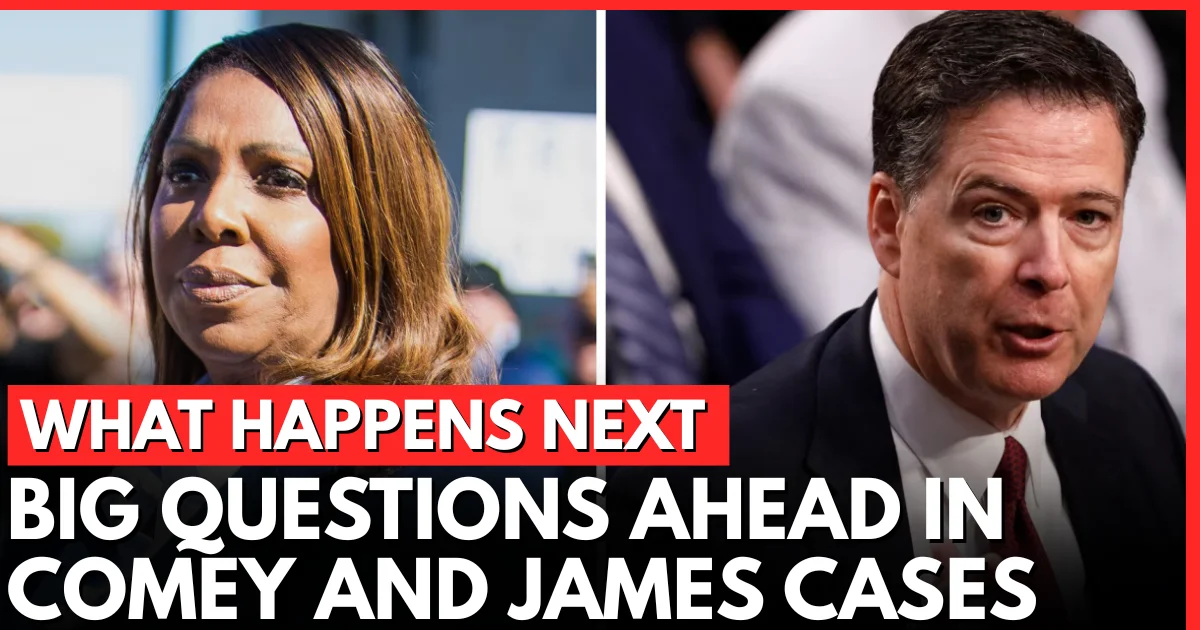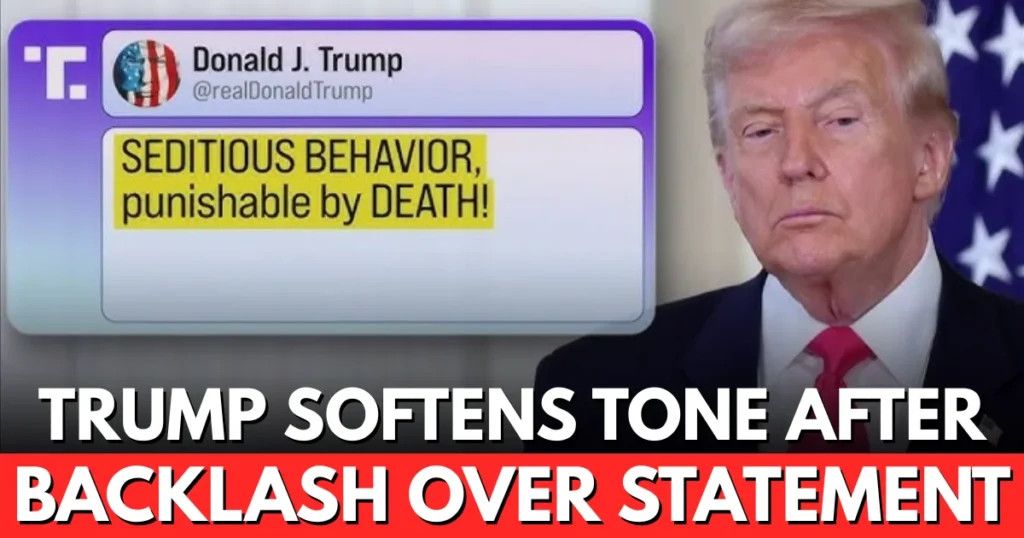Former FBI Director James Comey and NY AG Letitia James face escalating legal battles. Discover what comes next in these high-profile cases. Read the full story.
Table of Contents
What Comes Next in the High-Profile James Comey and Letitia James Cases?
Two prominent figures in American law and politics find themselves entangled in escalating legal battles. Former FBI Director James Comey and New York Attorney General Letitia James face uncertain paths forward as their cases draw intense national attention and raise fundamental questions about political power and legal boundaries.
Understanding the Two Cases
James Comey and Letitia James occupy very different positions in American public life. Yet both now face legal challenges that many observers view through political lenses.
Their situations share certain elements. Both involve high-profile individuals who clashed with powerful political figures. Both raise questions about where legitimate legal action ends and political retaliation begins.
Understanding what comes next requires examining each case separately before considering their broader implications.
The James Comey Situation Explained
James Comey served as FBI Director from 2013 until his controversial 2017 dismissal. Since leaving government, he’s remained a visible public figure and outspoken critic of certain political leaders.
Recent developments have placed Comey back in legal crosshairs:
| Development | Significance |
|---|---|
| Renewed federal scrutiny | Past decisions being reexamined |
| Document investigations | Handling of materials questioned |
| Public statements reviewed | Post-FBI commentary drawing attention |
| Potential legal exposure | Uncertain charges could emerge |
Comey maintains he acted properly throughout his career. His supporters argue current scrutiny represents politically motivated harassment.
What Comey Might Face Going Forward
Legal experts suggest several possible trajectories for Comey’s situation:
Criminal referral possibilities:
- Mishandling of classified information
- Alleged procedural violations during FBI tenure
- Conduct related to specific investigations
Civil action scenarios:
- Lawsuits related to official actions
- Defamation claims stemming from public statements
- Employment-related disputes
Congressional involvement:
- Testimony demands from committees
- Contempt proceedings if cooperation refused
- Public hearings examining past conduct
The coming months will clarify which direction authorities pursue. Comey has retained experienced legal counsel preparing for various scenarios.
Letitia James and Her Legal Challenges
New York Attorney General Letitia James built her career on high-profile prosecutions and civil actions. Now she faces her own legal scrutiny.
James gained national prominence through several major cases:
- Civil fraud case resulting in massive judgment
- Foundation dissolution proceedings
- Various corporate accountability actions
- Consumer protection enforcement
Her aggressive approach earned both admirers and determined opponents. Those opponents now seek to turn legal pressure back against her.
Specific Challenges Facing Letitia James
The New York Attorney General confronts multiple pressure points:
Federal investigation concerns:
Federal authorities have reportedly examined aspects of James’s office operations. While details remain limited, the scrutiny itself creates challenges.
Political counterattacks:
Powerful figures targeted by James’s prosecutions have resources and motivation for retaliation. Legal complaints and ethics allegations have surfaced.
Professional standing questions:
Bar complaints and professional misconduct allegations could threaten James’s law license. Such proceedings operate separately from criminal matters.
Electoral implications:
James holds an elected position. Legal troubles affect political viability regardless of ultimate outcomes.
The Constitutional Questions at Stake
Both cases raise fundamental issues transcending individual circumstances:
- Prosecutorial discretion limits — When does enforcement become persecution?
- Political speech protections — Can former officials face consequences for criticism?
- Federalism tensions — How do state and federal enforcement powers interact?
- Separation of powers — What checks exist against executive branch overreach?
Constitutional scholars are watching closely. These cases could generate precedents affecting future legal and political battles.
Legal Experts Weigh In
Attorneys and professors offer varying perspectives on likely outcomes:
Former federal prosecutors suggest:
- Cases against prominent figures face high evidentiary bars
- Public attention makes weak charges politically costly
- Career prosecutors often resist obviously political cases
Defense attorneys observe:
- Process itself becomes punishment regardless of outcomes
- Legal costs devastate even wealthy defendants
- Reputation damage occurs before any verdict
Constitutional scholars note:
- Norms against political prosecution have eroded
- Institutional guardrails face unprecedented testing
- Historical patterns may not predict current trajectories
Uncertainty dominates expert assessments. These situations lack clear historical parallels.
Timeline Expectations for Both Cases
Neither case appears headed for quick resolution. Complex legal matters involving prominent figures typically move slowly.
Near-term expectations (1-3 months):
- Preliminary motions and procedural battles
- Potential grand jury activity behind closed doors
- Public statements from both sides shaping narratives
- Media coverage intensifying around key developments
Medium-term possibilities (3-12 months):
- Formal charges filed or declined
- Civil proceedings advancing through discovery
- Congressional involvement expanding or contracting
- Settlement discussions potentially emerging
Longer-term scenarios (12+ months):
- Trial proceedings if charges materialize
- Appeals extending timelines further
- Political implications playing out through elections
- Historical assessments beginning to form
Patience will prove necessary for observers seeking definitive outcomes.
Political Implications Cannot Be Ignored
Whatever the legal merits, both cases carry enormous political significance:
For supporters of aggressive enforcement:
These cases represent dangerous precedents threatening officials who pursue accountability. Chilling effects could discourage future prosecutors.
For critics of perceived overreach:
These cases demonstrate necessary accountability for officials who allegedly abused their positions. Nobody should be above scrutiny.
For institutional observers:
These cases test whether legal systems can function fairly amid intense political polarization. Outcomes will shape public trust.
Americans across the political spectrum have stakes in how these situations resolve.
What Ordinary Americans Should Watch
Citizens following these cases should monitor several indicators:
- Judicial independence — Do courts resist political pressure?
- Prosecutorial professionalism — Are charging decisions defensible?
- Due process protections — Do defendants receive fair treatment?
- Media coverage quality — Does reporting distinguish fact from speculation?
- Political rhetoric restraint — Do leaders respect legal proceedings?
These markers reveal more about American institutional health than individual case outcomes.
FAQs
Who is James Comey and why is he facing legal scrutiny?
James Comey served as FBI Director from 2013 to 2017 before his controversial dismissal. He has remained publicly critical of certain political figures since leaving office. Current scrutiny reportedly involves his conduct during his FBI tenure and handling of sensitive materials.
What cases has Letitia James prosecuted that made her prominent?
Letitia James gained national attention through major civil fraud prosecutions resulting in substantial financial judgments. She also pursued foundation dissolution cases and various corporate accountability actions as New York Attorney General, establishing a reputation for aggressive enforcement.
Could either Comey or James actually face criminal charges?
Criminal charges remain possible but uncertain for both figures. Federal prosecutors must meet high evidentiary standards, especially in politically sensitive cases. Many legal experts suggest charges would face intense scrutiny and potential challenges regardless of which direction authorities pursue.
How long might these legal cases take to resolve?
Complex cases involving prominent public figures typically require years for full resolution. Preliminary proceedings, potential trials, and likely appeals could extend timelines significantly. Observers should expect ongoing developments rather than quick conclusions.
What precedents could these cases set for future political figures?
These cases could establish precedents regarding prosecution of former officials, limits on state attorneys general, and boundaries around political speech. Outcomes may influence whether future officials face similar scrutiny and how aggressively prosecutors pursue politically connected targets.
Conclusion
The legal futures of James Comey and Letitia James remain genuinely uncertain. Both face serious challenges that could reshape their careers and lives.
Beyond individual outcomes, these cases test American institutions during a period of intense political division. How courts, prosecutors, and the public respond will reveal much about the nation’s commitment to equal justice.
Whatever happens next, these cases will command attention for months or years to come.
Stay connected for continuing coverage as these major cases develop. Share your thoughts on these legal battles in the comments below.

